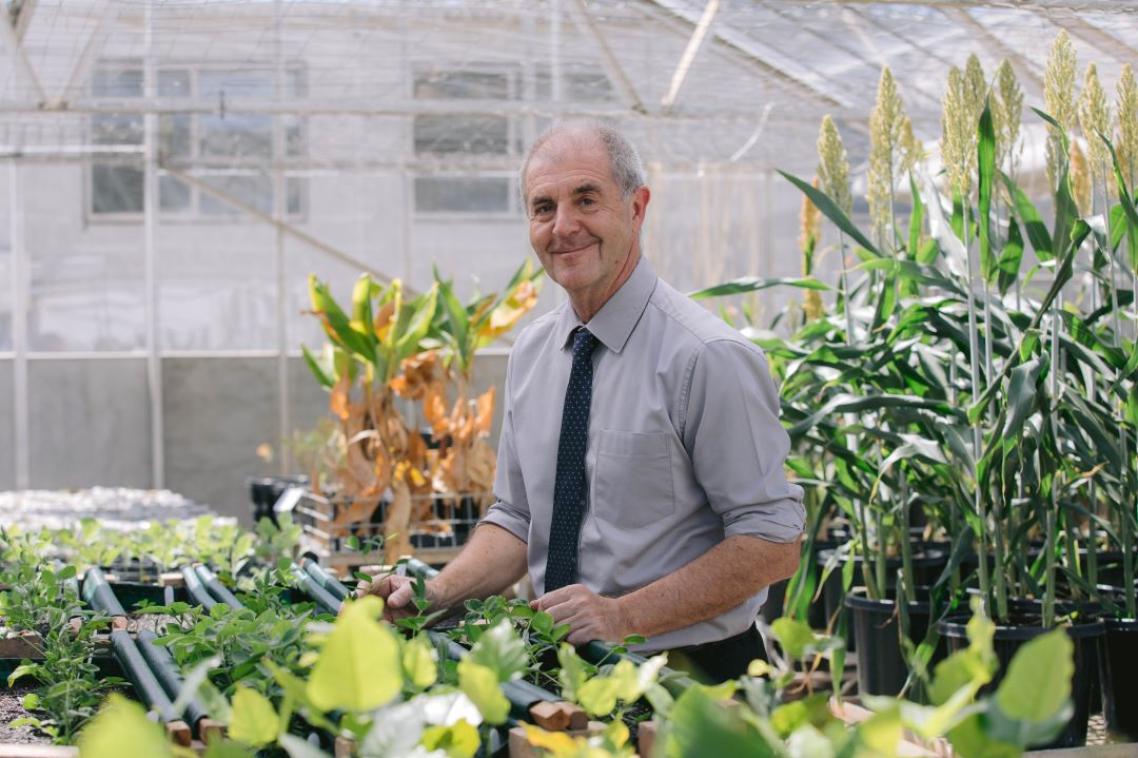Plants with therapeutic health benefits: the next generation of functional foods

Professor David Craik will create functional foods with therapeutic benefits.
(Photo credit: The University of Queensland. )
Key points
- UQ will work with industry partners Phyllome and Pharmacare to develop next-generation plants or ‘functional foods’ containing therapeutic peptides.
- UQ's Professor David Craik is an expert in a type of peptide called cyclotides that can be engineered to deliver specific health benefits.
- The partnership is the first commercial application of Professor Craik's cyclotide technology in functional foods.
An interstate research-industry partnership will develop plants containing compounds that could relieve pain, reduce cholesterol levels or suppress appetite.
The University of Queensland, biotechnology company Phyllome, and health and wellness business Pharmacare will collaborate to develop a category of next-generation plants or ‘functional foods’ containing therapeutic peptides.
Supported by a $1.2 million Australian Research Council (ARC) grant, the partnership leverages UQ's expertise in a type of peptides called cyclotides, which are a class of naturally occurring circular proteins discovered by UQ Professor David Craik.
Professor Craik's team at UQ's Institute for Molecular Bioscience has spent decades characterising these ultra-stable peptides, which can be engineered to deliver specific health benefits.
"We've developed the ability to program plants to produce these specific therapeutic peptides," said Professor Craik, whose discovery of cyclotides originated from studying African traditional medicine where women drank tea from specific plants to aid childbirth.
"This creates an entirely new category of functional foods where the therapeutic compound is grown directly into the food product."
Phyllome’s robotic plant production facility in Sydney uses artificial intelligence to create ideal growing conditions for commercial food crops and supplies fresh produce to major Australian supermarket chains.
Its controlled-environment facility will be adapted to cultivate plants containing these bioactive peptides.
Partner Investigator at Phyllome, Sebastien Eckersley-Maslin, said consumer behaviour was shifting towards functional foods that provide health benefits beyond basic nutrition.
“Plant-based production would produce therapeutic compounds directly within food products rather than through synthetic manufacturing processes,” Mr Eckersley-Maslin said.
"This approach aligns with consumer demand for natural, sustainable health solutions as we're essentially creating foods that function as medicine.’’
The UQ-Phyllome-Pharmacare partnership represents the first commercial application of Professor Craik's cyclotide technology in functional foods.
PharmaCare Laboratories is an Australian manufacturing company specialising in vitamins, supplements and botanicals, and would support commercial rollout of the functional foods.
The partnership builds on UQ's established expertise in commercialising research discoveries through UniQuest Pty Ltd, and Professor Craik's track record of successful industry collaborations spanning over a decade.
Related articles

Link proven between gut inflammation and inflammatory arthritis
Mystery tumours killing tree frogs
Media contact
UQ Communications
communications@uq.edu.au
+61 429 056 139
